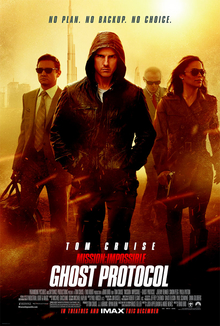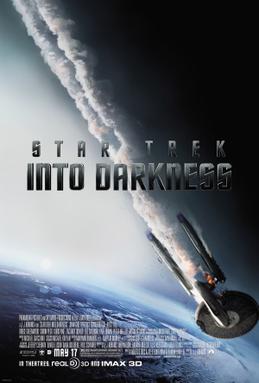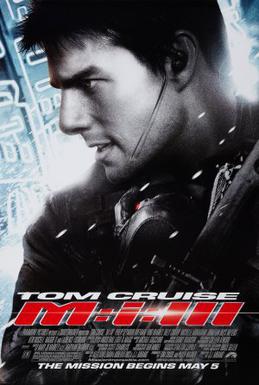 |
| Chris Pine and Zachary Quinto in Star Trek Beyond |
Captain James T. Kirk: Chris Pine
Commander Spock: Zachary Quinto
Dr. McCoy: Karl Urban
Lieutenant Uhura: Zoe Saldana
Montgomery Scott: Simon Pegg
Sulu: John Cho
Chekov: Anton Yelchin
Krall: Idris Elba
Jaylah: Sofia Boutella
Director: Justin Lin
Screenplay: Simon Pegg, Doug Jung
Cinematography: Stephen F. Windon
Production design: Andrew Murdock, Thomas E. Sanders
Music: Michael Giacchino
Costume design: Sanja Milkovic Hays
Writing a screenplay for a
Star Trek reboot film must be something of a confining job. You have to provide a worthy adversary for the Enterprise crew, who eat worthy adversaries for lunch, so you need to create a role for an actor who doesn't mind hamming it up, like Eric Bana, Benedict Cumberbatch, or Idris Elba, and keep the role distinct from all the other villains who have threatened the Enterprise. You have to provide the requisite familiar shtick for the characters: Bones and Spock must squabble, but good naturedly; Bones has to say something like "I'm not a doctor, I'm a...." at least once; Scotty has to fuss about the limitations of his engines; Chekov has to have a charming occasion to pronounce his v's like w's, and so on. You also have to provide a few surprises about the characters: Spock and Uhura are a couple! Sulu's gay! You have to have a pretty female newcomer who can wear elaborate alien makeup but still look pretty. You have to set up the plot to accommodate spectacular special effects. So no wonder that each successive reboot movie feels a little overfamiliar, and that there are shortcuts in the narrative that don't bear close inspection. In
Star Trek Beyond, for example, we leave Scotty hanging from a cliff by the fingertips of one hand, but not too much later he shows up alive and well with no explanation of how someone with the average musculature of a Simon Pegg hoisted himself over the edge. And no wonder that
Star Trek Beyond went through heavy rewriting, with Pegg and Doug Jung taking over the script after a first draft by Roberto Orci, Patrick McKay, and John D. Payne was turned down by the producers. There are some touches of wit in the script, such as the opening sequence in which Kirk faces down a crowd of what appear to be fearsome monsters but turn out to be about the size of schnauzers, and a clever use of an antique boom box -- perhaps a nod to the one carried by the punk in
Star Trek IV: The Voyage Home (Leonard Nimoy, 1986), whom Spock incapacitated with a Vulcan nerve pinch -- as a lethally disorienting weapon against Krall's forces. The box booms out the Beastie Boys' "Sabotage," a track that would be several centuries old, and Bones asks Spock, "Is that classical music I'm hearing?" to which Spock replies, "Yes, doctor, I believe it is." The cast does its usual best, with Pine nicely suggesting some of the old Shatnerian swagger as Kirk without resorting to caricature, and Elba, for much of the film unrecognizable under the makeup, giving his villain real menacing weight. But in the end, the reboot itself has lost freshness. It's time to give the shtick a rest and to provide a threat to the crew that isn't so dependent on an actor going over the top. Perhaps it's time to come up with a science fiction plot that relies more on science than on fiction.
Watched on Hulu





